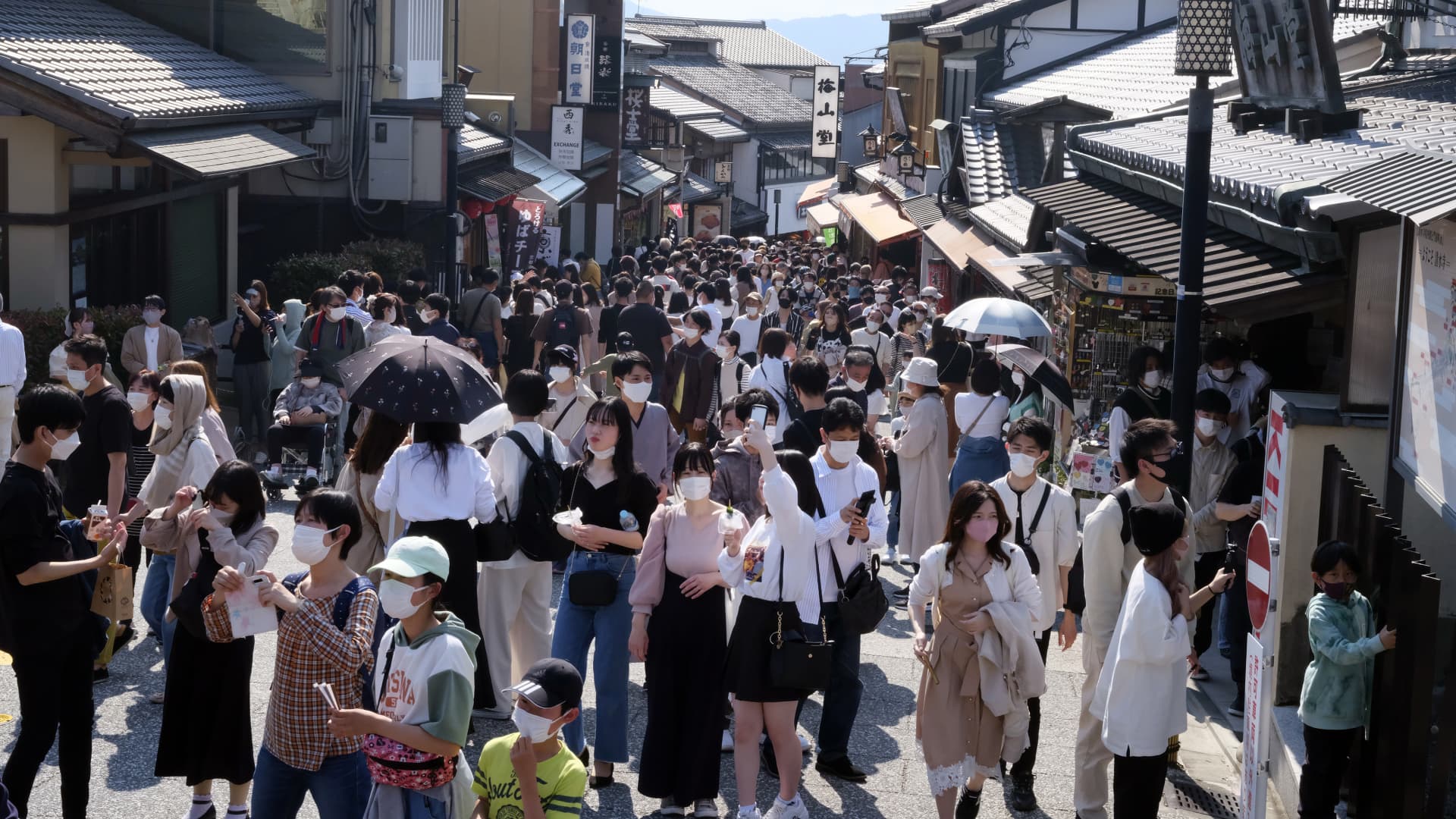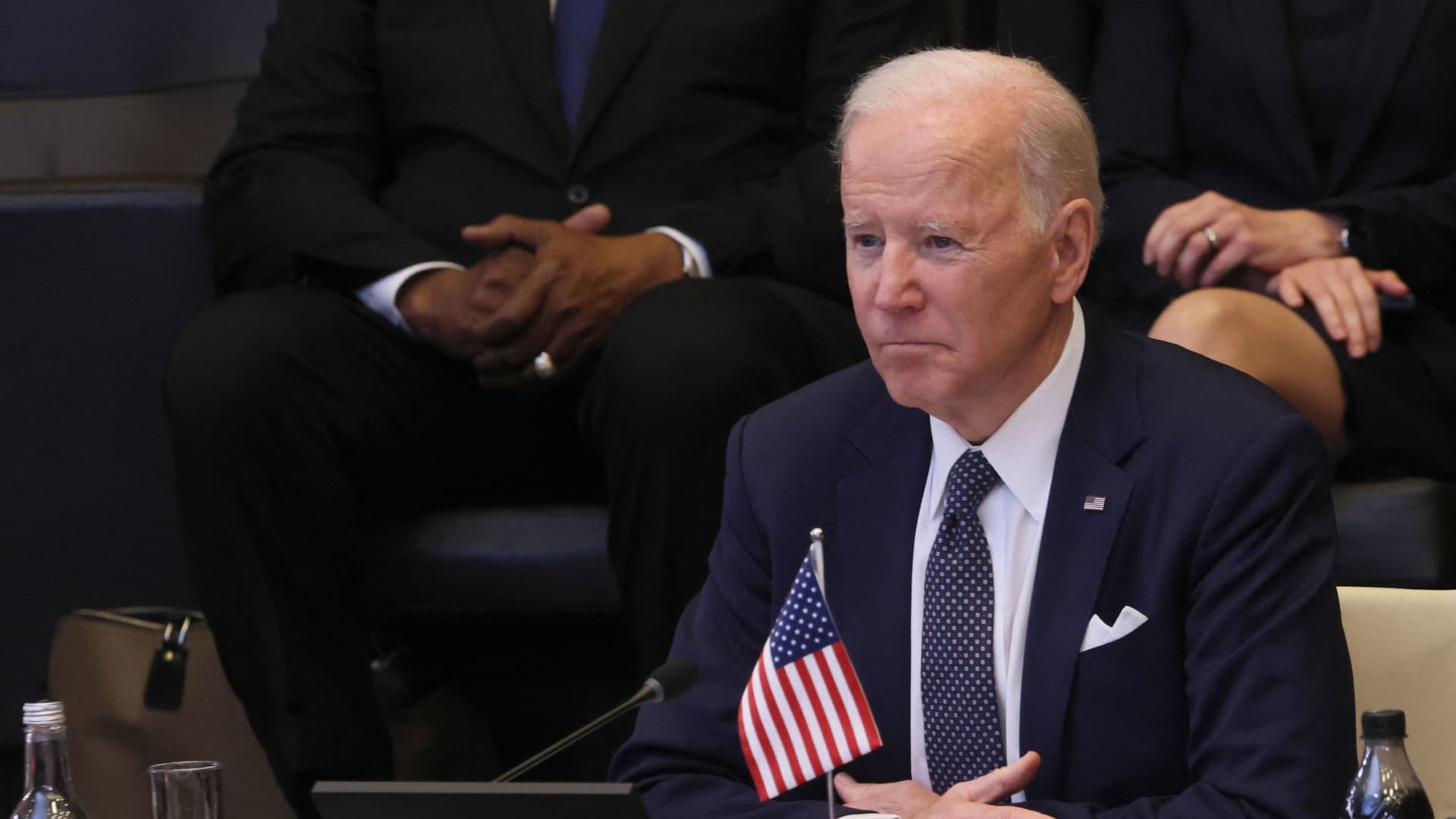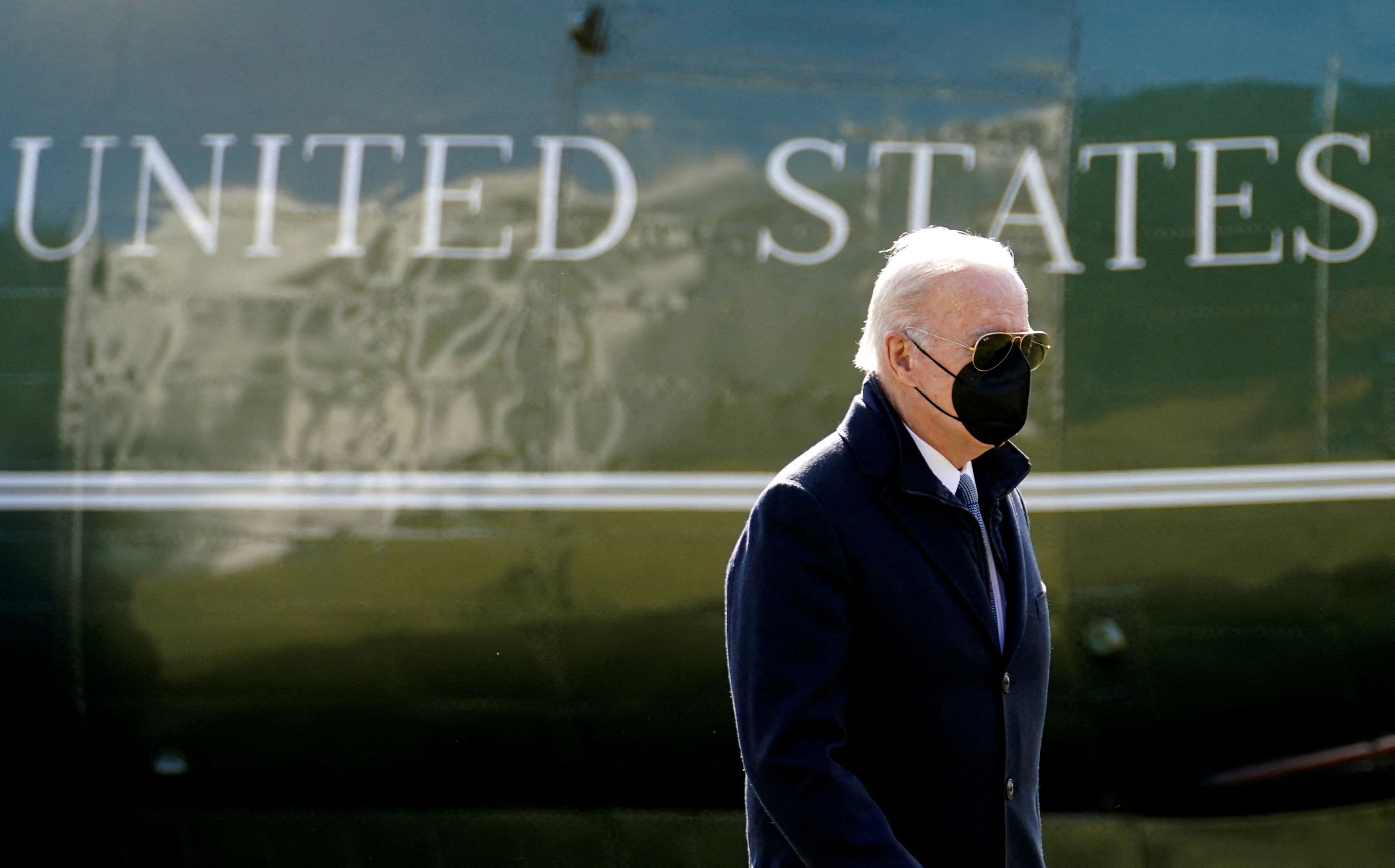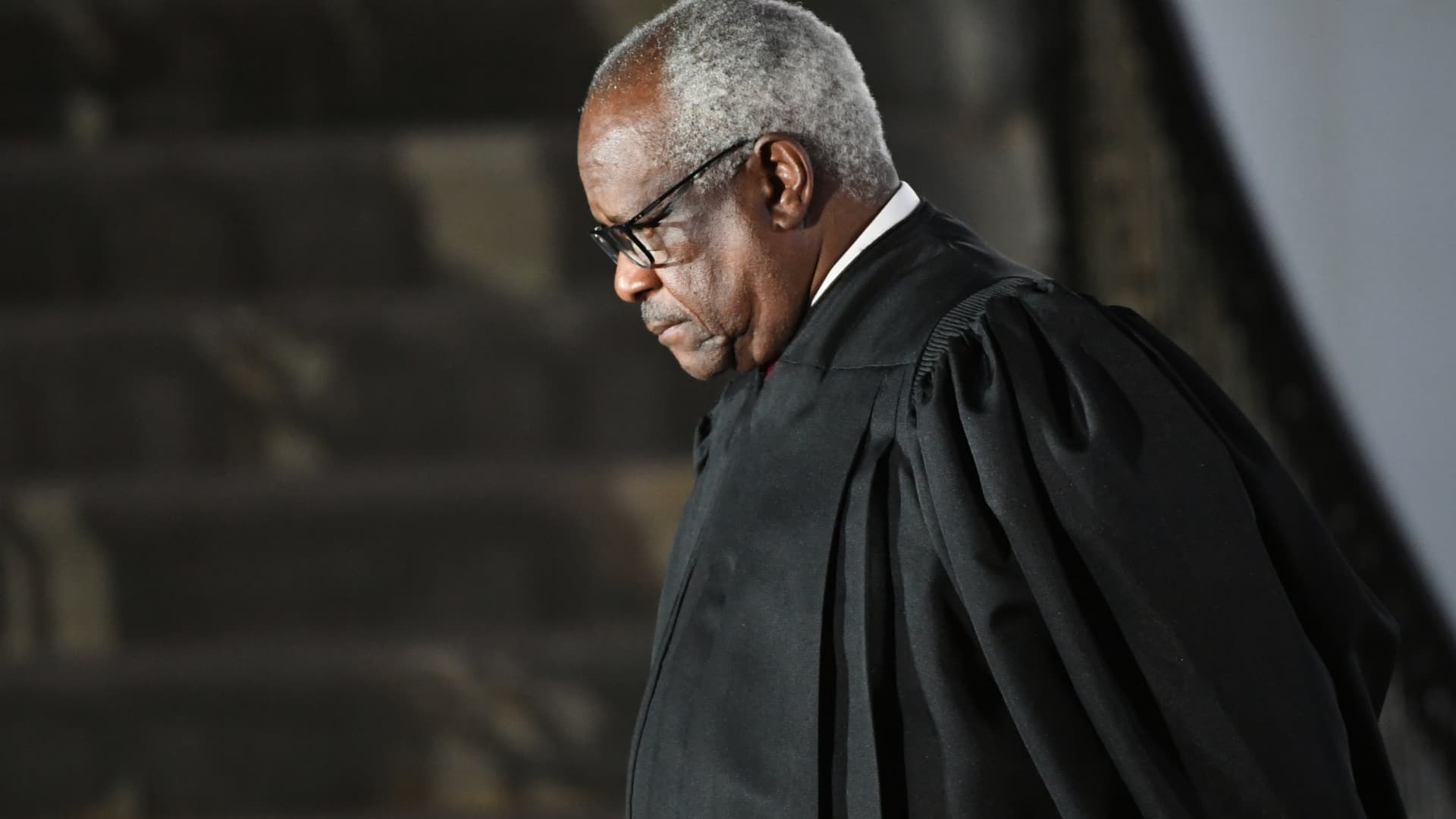Marcos vows to defend the Philippines' sovereignty amid China's 'aggression and provocations'
Manila has stepped up its resistance this year against Beijing's aggressive claims and projection of power over almost the entire waterway.
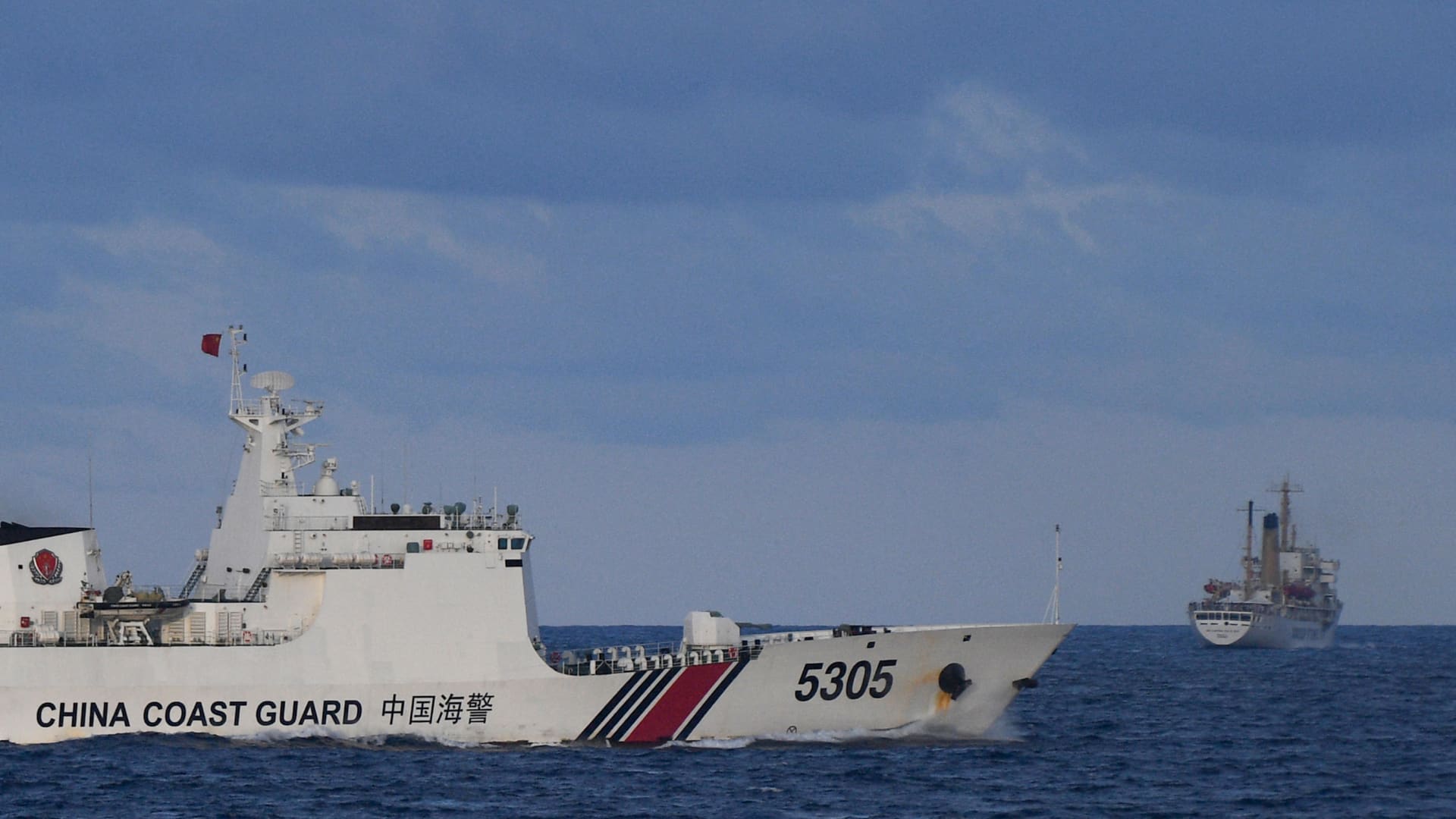
A Chinese Coast Guard ship sails near a Philippine vessel (R) that was part of a convoy of civilian boats in the disputed South China Sea on December 10, 2023. A convoy of civilian boats planning to deliver provisions to Filipino fishermen and troops in the disputed South China Sea aborted the trip on December 10 after "constant shadowing" by Chinese vessels, the organiser said.
Ted Aljibe | Afp | Getty Images
Philippine President Ferdinand Marcos Jr. has vowed to step up the country's defense of its maritime zones in the South China Sea after Filipino and Chinese vessels collided over the weekend in what Manila has labeled a "serious escalation."
Both countries said Monday they have lodged mutual diplomatic protests, while Manila summoned the Chinese ambassador.
On Sunday, the Philippines accused China of causing "severe damage" to one of its vessels, which was part of a convoy on a resupply mission to Second Thomas Shoal, a submerged reef in the Spratly Islands in the South China Sea. Filipino troops are stationed at its outpost on the BRP Sierra Madre, a warship grounded at the shoal in 1999 to buttress Manila's maritime claims.
"We remain undeterred," Marcos said Sunday in a post on X, formerly Twitter.
"The aggression and provocations perpetrated by the China Coast Guard and their Chinese Maritime Militia against our vessels and personnel over the weekend have only further steeled our determination to defend and protect our nation's sovereignty, sovereign rights, and jurisdiction in the West Philippine Sea."
China's Coast Guard "directly targeted" Filipino vessels, "disabling the vessel and seriously endangering the lives of its crew," according to a statement by the Philippines Maritime Task Force, shared by Jay Tarriela, Philippine Coast Guard spokesperson for the West Philippine Sea.
China's Ministry of Foreign Affairs on Monday echoed an earlier statement from China's Coast Guard saying the Philippines is responsible for the weekend's maritime incidents after Filipino vessels ignored warnings to stay away.
Local media reported that the Philippine Chief of Staff of the Armed Forces Romeo Brawner as saying he was on board one of the vessels that was rammed and sprayed with a water cannon.
'Serious escalation'
The confrontation came as the Philippines stepped up its resistance this year against China's aggressive claims and projection of power over almost the entire waterway that Manila calls the West Philippine Sea.
Other Southeast Asian countries like Brunei, Indonesia, Malaysia, and Vietnam also claim parts of the South China Sea. In 2016, the Permanent Court of Arbitration at The Hague ruled that China's expansive claims in the South China Sea have no basis in international law.
"This is a serious escalation on the part of the agents of the People's Republic of China," said Jonathan Malaya, a spokesperson for the Filipino National Security Council, on Monday.
However, he added that the weekend escalation did not constitute an "act of war," and instead characterized the actions as a "cat-and-mouse game" China is engaging to further its interests.
The confrontation over the weekend occurred just weeks after leaders from both countries met to chart a way forward on the South China Sea on the sidelines of the Asia Pacific Economic Cooperation leaders summit in San Francisco.
"There is a dissonance between what is being said and promised with what's happening in the waters," Maria Teresita Daza, a spokesperson for the Philippines' Foreign Ministry, said at the same briefing in Manila.
While many Asian economies are dependent on China for economic growth, they are also wary of Beijing's assertiveness in the South China Sea and many have courted closer U.S. ties as a result.
Regional stability
At its regular press conference in Beijing on Monday, China foreign ministry spokesperson Mao Ning put the blame squarely on the Philippines for "insisting on rushing into" disputed waters in the South China Sea.
Mao urged the Philippines to work with China to "stop all provocations" and work to address issues, warning that Beijing will take necessary actions to deal with any provocations.
She said this was an issue between China and the Philippines, and accused the U.S. of "long instigating" the Philippines.
Malaya, the spokesperson for the Filipino National Security Council, earlier refuted such claims at the press conference. He said the U.S. — a treaty ally — was not involved in the latest maritime convoy.
According to the U.S. State Department, a separate incident at the Scarborough Reef on Saturday used acoustic devices, incapacitating the Filipino crew members, and drove away Philippine fishing vessels.
"Obstructing supply lines to this longstanding outpost and interfering with lawful Philippines maritime operations undermines regional stability," State Department spokesperson Matthew Miller said Sunday.
"As reflected in an international tribunal's legally binding decision issued in July 2016, the PRC has no lawful maritime claims to the waters around Second Thomas Shoal, and Filipinos are entitled to traditional fishing rights around Scarborough Reef."

 JimMin
JimMin 







